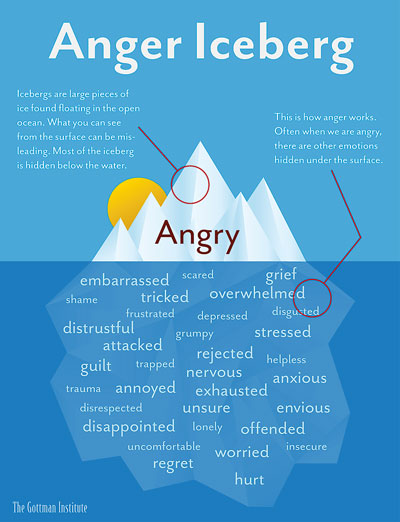29 Dec 2017 - {{hitsCtrl.values.hits}}

 A volcano will soon erupt and those around it are unsure what would happen next. Boom! The volcano erupted burning everything into ashes. Do you know these type of people who erupt like volcanoes? Well, that’s because they can’t control their temper. Let us talk about anger management with Dr. Shavindra Dias, Consultant Psychiatrist and Senior Lecturer of the Psychiatry Department, Facultyof Medicine, Peradeniya University.
A volcano will soon erupt and those around it are unsure what would happen next. Boom! The volcano erupted burning everything into ashes. Do you know these type of people who erupt like volcanoes? Well, that’s because they can’t control their temper. Let us talk about anger management with Dr. Shavindra Dias, Consultant Psychiatrist and Senior Lecturer of the Psychiatry Department, Facultyof Medicine, Peradeniya University.
“Humans have both positive and negative emotions. Positives are joy, happiness, contentment and fulfillment, and the negatives include anger, jealousy and fear. Some people have one of these emotions prominently in their character. For those who are always happy, it is because happiness is prominent among them. Those who are always enraged, have anger as their predominant character. When anger spirals out of control, it is unhealthy as it affects relationships, mentality and health,” Dr. Dias said.
Types of anger

Emotional
Physical
Verbal
Anger index
Racing heart
Loud voice
Headache
Breathing faster
Knots in stomach
Dried up throat
Physically attacking something or someone
“Anger is like built-up pressure in a tank, which eventually finds a leak and releases the pressure. Anger breaks at one point. Anger is an emotion like happiness, and it is healthy to have some anger. Anger takes an extremely destructive form when it runs out of control. It is totally okay to be angry but within the social norms and social context,” Dr. Dias said.
The good
“A child cries in anger to have his mother’s attention. Eventually, the mother hears the vague cries and runs to her child. Anger is one of the protective mechanisms seen in the behaviour of the animal kingdom. Anger stimulates the fight or flight reaction in animals. A mother will get angry with her son when he doesn’t do his homework and her anger will signal the child to do what he is not doing,” Dr. Dias said.
The bad
“Self harm as a way of letting the anger out is the worst action of all. Secondly, keeping or hiding the anger inside is both physically and mentally harmful. People don’t have to be aggressive to express their anger,” Dr. Dias said.
Don’t hold it
“Anger should be well communicated. It is a way of expressing something is threatening or upsetting you. Build the skill of expressing your problem without damaging relationships or your social status. The nervous reaction of anger exists for only two seconds. Therefore, it should be clearly understood that everything after those two seconds is your own thoughts. Practice expressing anger in a harmless manner. Communicating in a respectful way will get other’s attention. They will listen to you and understand your needs. Some situations tempt you to be aggressive, but don’t let others push your button and keep control of how you respond. Do not suppress the feelings of anger but rather understand the message behind and communicate it,” Dr. Dias said.
Tips to control your anger
Go to the washroom and count from 90 to 1 or 10 to 0 slowly.
Wash your face with cold water.
Shut up and get yourself out of the battle zone.
Identify the thought of anger when you are feeling angry.
Develop a thick skin - Identify when anger is coming on the way and protect yourself
Have own strategy to control your anger
Learn to express yourself without hurting others
“Some people have a little anger threshold. They often fire compared to others. They have unacceptable expectations, unrealistic goals, foster anger (too much anger) and they are overly decisive,” Dr. Dias said.
Effects of anger
“Although anger is just an emotion, it has the power over your physical self. Always being “high” on stress and anger will give you high blood pressure, weaken your immune system, give you diabetics, insomnia and heart attacks. If you are an aggressive character, a huge capacity of your mental energy is spent on anger, and you would be prone to stress, depression and a number of other mental illnesses. Anger will make lasting scars in the memory of your loved ones and gets in the way of personal as well as professional relationships.
“Expressing anger comes from the background in which one grew up. When children see shouting parents and elders hitting each other, they pick such behaviour thinking it is how anger is expressed. Therefore, parents must be careful not to fight or argue in front of their children, and train themselves to express anger in a controlled, non-harmful way,” Dr. Dias said.
Do you know?
Negative thinking patterns can fuel feelings of anger. Thinking negatively about someone or something, having high expectations and demands from others and failing to accept the reality, jumping into conclusions thinking you know someone else thought badly about you, recollecting small incidents from the past against someone, convincing yourself that he or she is always insane and blaming others when something goes wrong are a few characteristics of a negative thinker who tries to justify his or her actions of anger, according to the internet.
23 Dec 2024 59 minute ago
23 Dec 2024 1 hours ago
23 Dec 2024 1 hours ago
23 Dec 2024 3 hours ago
23 Dec 2024 3 hours ago